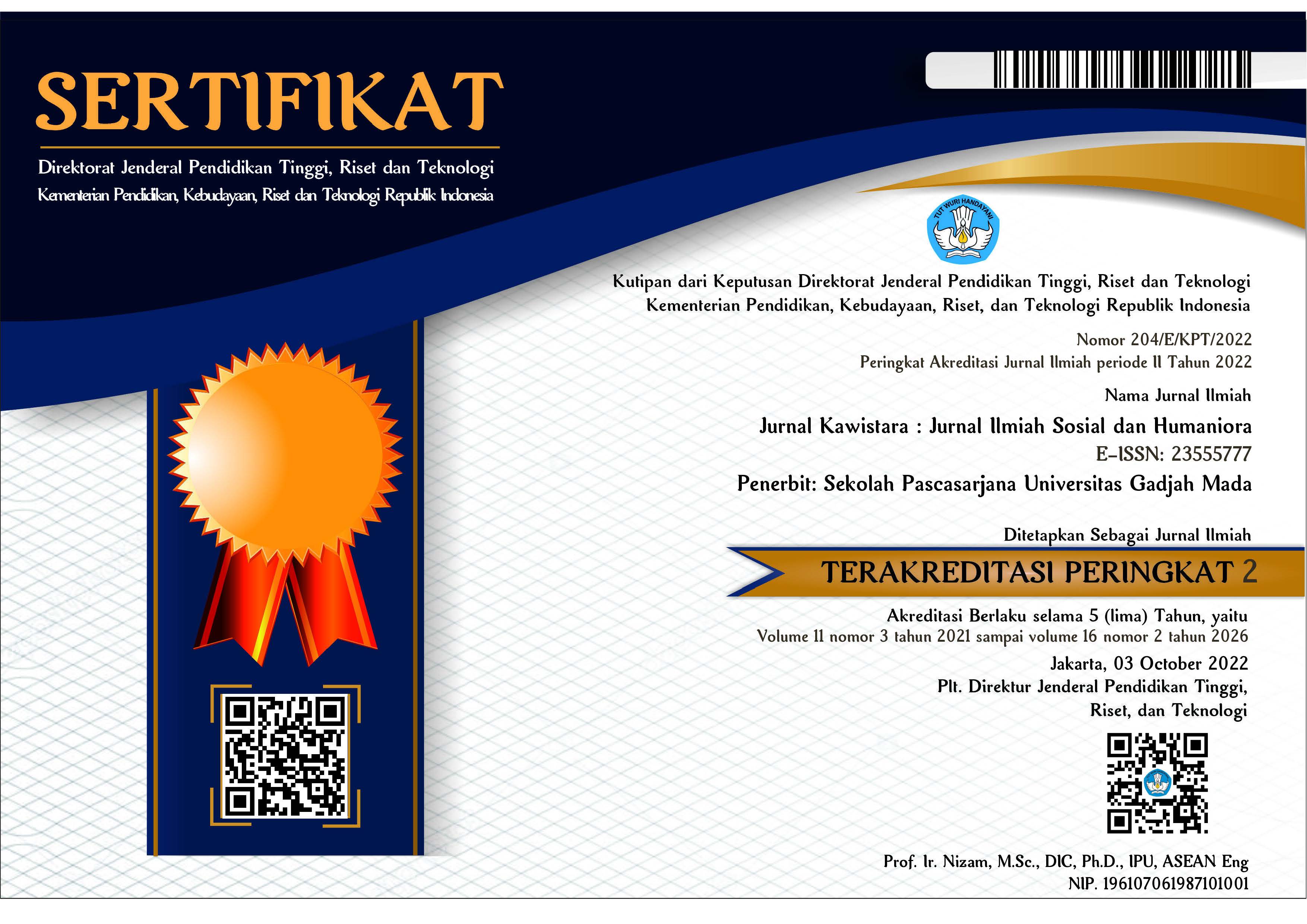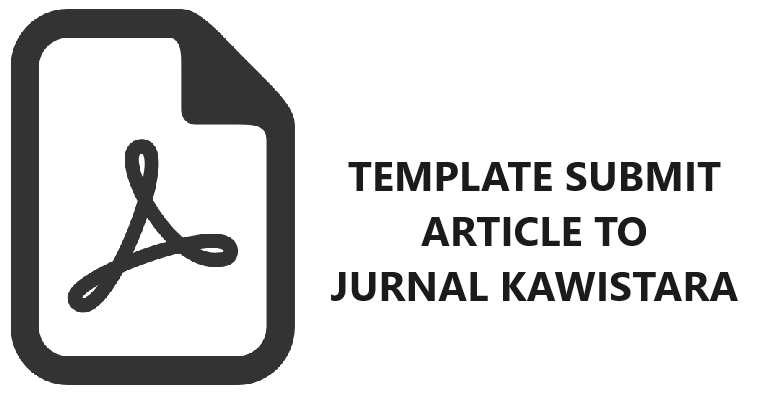Faktor yang Mempengaruhi Niat Mengadopsi Usahatani Sayuran Organik di Kecamatan Getasan Semarang
Vaniamon Wira Yasyak(1*), Suhatmini Hardyastuti(2), Slamet Hartono(3)
(1) Universitas Gadjah Mada
(2) Manajemen Agribisnis Fakultas Pertanian Universitas Gadjah Mada
(3) Manajemen Agribisnis Fakultas Pertanian Universitas Gadjah Mada
(*) Corresponding Author
Abstract
Organic farming has attracted increasing attention in recent decades. Many believe this is necessary to maintain agricultural production while addressing environmental damages caused by conventional farming methods. However, the adoption of organic vegetable farming in Indonesia is still fairly slow. The fact that only a small number of farmers adopt organic farming begs explanation. Studies have shown that intention determines human behaviors. The problem is that intention to choose organic farming does not always manifest in behavior. To address this problem it is helpful to consider three factors affect how intention manifest in behavior, namely attitudes, subjective norms, and behavioral control. Based on in the case study on the central vegetable farming area of Kopeng village where conventional farming is still dominant, this paper analyzes the intention organic farmers in the light of the theory of planned behavior. Applying the SEM-PLS model of analysis, it identifies the key-driver organic farmers. This study found that farmers’ positive attitude toward organic farming is not the main drive in their shift from non-organic to organic farming. Rather than subjective norms, behavior control has the greater influence on the farmers’ choice to adopt organic vegetable farming. Famers view organic agriculture positively; but the main obstacle is the access to information about organics, certification capabilities and other aspects of behavioral control which make adoption rate for organic vegetable farming is still low.
Keywords
Full Text:
PDFReferences
Ajzen, Icek. 2005. “Attitudes, Personality and Behaviour.” in Mapping Social Psychology.
Ayuya, Oscar I., Eric O. Gido, Hillary K. Bett, Job K. Lagat, Alexander K. Kahi, and Siegfried Bauer. 2015. “Effect of Certified Organic Production Systems on Poverty among Smallholder Farmers: Empirical Evidence from Kenya.” World Development.
Borges, João Augusto Rossi, Alfons G. J. M. Oude Lansink, Claudio Marques Ribeiro, and Vanessa Lutke. 2014. “Understanding Farmers’ Intention to Adopt Improved Natural Grassland Using the Theory of Planned Behavior.” Livestock Science.
Cohen, Jacob. 1992. “Cohen (1992) - A Power Primer.Pdf.” Psychological Bulletin.
F. Hair Jr, Joe, Marko Sarstedt, Lucas Hopkins, and Volker G. Kuppelwieser. 2014. “Partial Least Squares Structural Equation Modeling (PLS-SEM).” European Business Review.
Hattam, Caroline. 2006. “Adopting Organic Agriculture : An Investigation Using the Theory of Planned Behaviour.” in Land Economy Research Group.
Icek Ajzen. 2005. “Ajzeni-2005-Attitudes-Personality-and-Behaviour-2nd-Ed-Open-University-Press.Pdf.” International Journal of Strategic Innovative Marketing.
Issa, Irwa and Ulrich Hamm. 2017. “Adoption of Organic Farming as an Opportunity for Syrian Farmers of Fresh Fruit and Vegetables: An Application of the Theory of Planned Behaviour and Structural Equation Modelling.” Sustainability (Switzerland).
Kuminoff, Nicolai V. and Ada Wossink. 2010. “Why Isn’t More Us Farmland Organic?” Journal of Agricultural Economics.
Läpple, Doris. 2010. “Adoption and Abandonment of Organic Farming: An Empirical Investigation of the Irish Drystock Sector.” Journal of Agricultural Economics.
Lapple, Doris and Hugh Kelley. 2010. “Understanding Farmers ’ Uptake of Organic Farming: An Application of the Theory of Planned Behaviour.” The 84th Annual Conference of the Agricultural Economics Society.
Mayrowani, Henny. 2012. “The Development of Organic Agriculture in Indonesia.” Forum Penelitian Agro Ekonomi 30(2):91–108.
Pietola, K. S. 2001. “Farmer Response to Policies Promoting Organic Farming Technologies in Finland.” European Review of Agriculture Economics.
Wiratmaja I.I., Nurjanah N., Kurniawati A. 2017. “Model Penerimaan Petani Terhadap Teknologi Sistem Pertanian Organik Di Kabupaten Tasikmalaya.” Jurnal Manajemen Teknologi. 16(1):81–91.
Article Metrics
Refbacks
- There are currently no refbacks.
Copyright (c) 2020 Vaniamon Wira Yasyak

This work is licensed under a Creative Commons Attribution-ShareAlike 4.0 International License.
Jurnal Kawistara is published by the Graduate School, Universitas Gadjah Mada.











